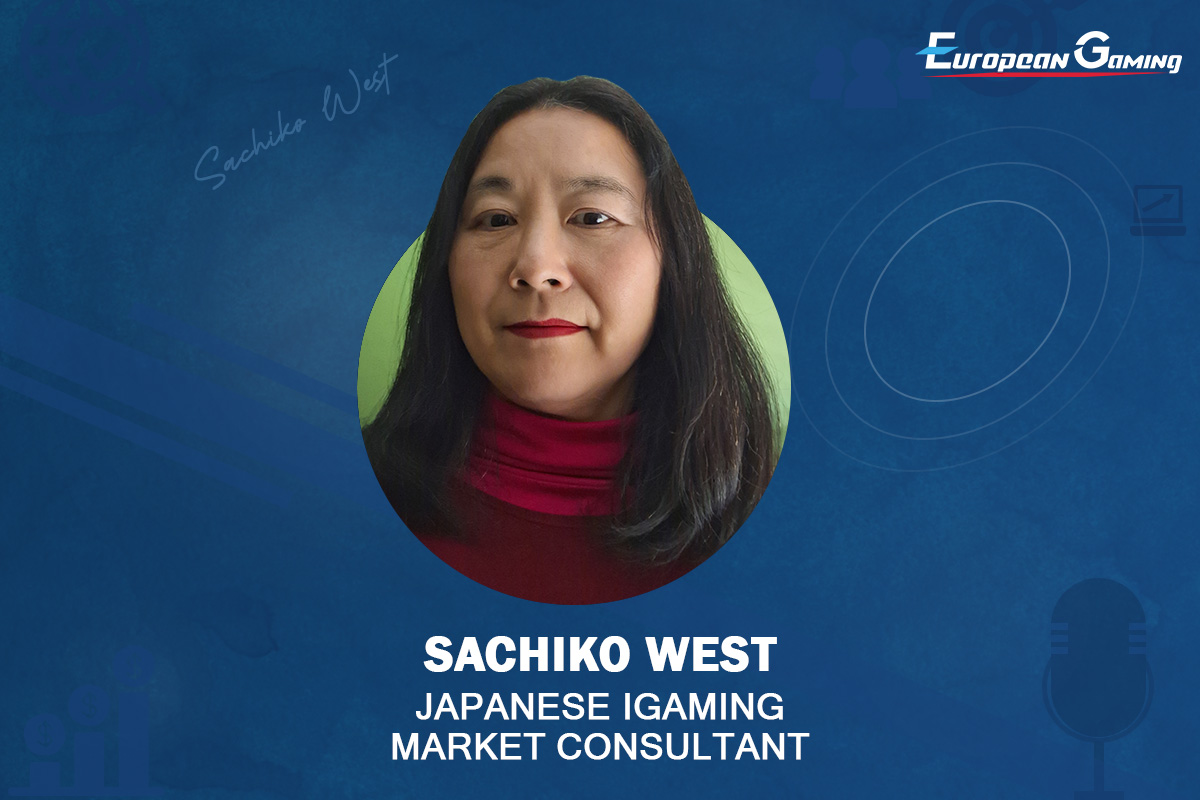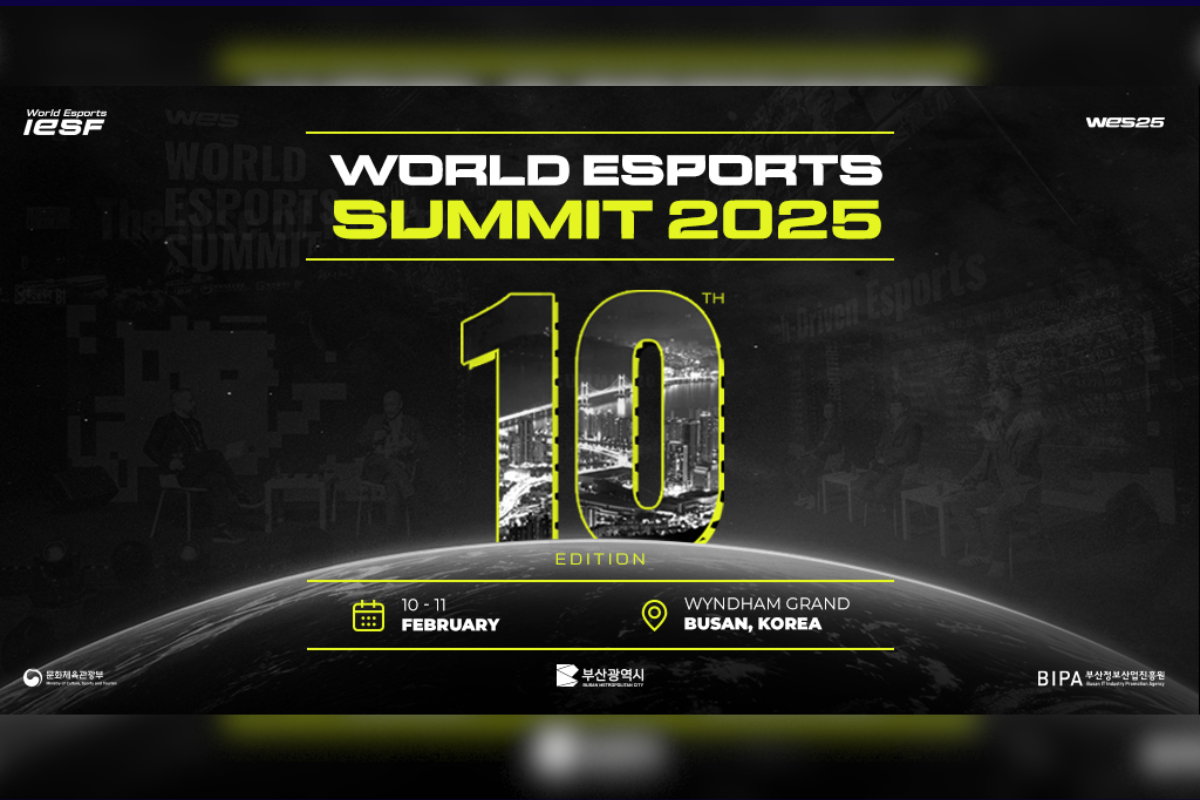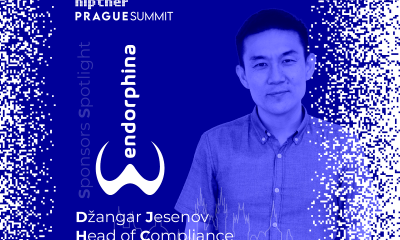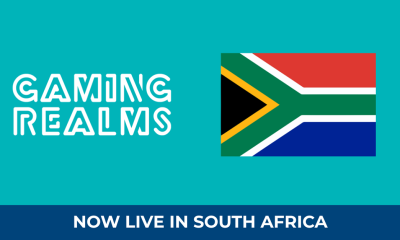Asia
Navigating Japan’s Evolving iGaming Landscape: Insights and Predictions with Sachiko West

Current State of the Market (2024)
How would you describe the current state of the iGaming market in Japan in 2024? Have there been any significant milestones or shifts this year?
Despite the uncertainty of how the future Police campaigns will change the iGaming landscape in Japan, the number of online casino users including sports bettors seems to be growing steadily, and more online casinos are entering the Japanese market. One thing in common within the industry is that companies no longer hire anyone based in Japan for the Japanese market.
What are the most popular types of games or gambling activities among Japanese players right now?
Social casino games are on the up. Besides Pachinko-type slots, Plinko, Crash and Hi-Lo are increasingly popular among casino players.
How has the regulatory environment evolved in 2024? Have there been any notable changes that impacted operators or consumers?
In 2024, the Japanese Police arrested more people than the previous years in relation to use of online casinos. Streamers have become a clear target as well as payment providers based in Japan. Encouraged by the current Prime Minister’s support, the Police declared in August that they would investigate more iGaming affiliates and online casino operators even outside Japan. The Police made over 100 arrests so far in 2024 in relation to use of online casinos.
With more risks associated with promoting online casinos, streamers command higher fees than ever. Some YouTubers are migrating to other platforms trying to avoid detection by the Police.
What role has mobile gaming played in shaping the iGaming market in Japan, and how does it compare to desktop or other platforms?
Japan is a mobile market. Over 70% of players play on a mobile phone. As they are also technology-driven people, the usability of the casino platform on mobile phones could be the key to acquire and retain players. Those operators who study the Japanese mobile players’ behaviour and preferences would have enjoyed better results in both casino and sports betting in 2024.
Have advancements in technology, such as blockchain or virtual reality, been widely adopted in Japan’s iGaming sector?
More and more people are shifting to using cryptocurrency when they play online casinos. The demographics of crypt users are also wider in Japan. User age could be up to 60.
Challenges and Opportunities
What do you see as the biggest challenges currently facing operators and other stakeholders in the Japanese market?
Japan is an affiliate-driven market. The affiliate/ streamer costs are expected to increase as the risks increase. As direct marketing i.e. through local media is limited, boosting brand awareness can be tricky. You have to come up with creative ideas and catch the right moment.
With increasing competition from both local and international operators, how are companies differentiating themselves to attract Japanese players?
To start with, operators tend to hire native Japanese speakers to make sure the site is fully localized and to meet the needs of Japanese users. Then the branding. They also tend to offer bonuses and promotions that are appealing to Japanese users.
Are there any notable examples of successful partnerships between operators and local entities or institutions in Japan?
Live streaming providers and fighting event organisers are known to work with operators well.
How do you think offshore and unlicensed operators affect the market landscape and trust among consumers?
Not many unlicensed operators are known or promoted in the Japanese market.
Looking Ahead to 2025
What key trends or developments do you expect to emerge in Japan’s iGaming market in 2025?
More new Japanese players via social media would play at online casinos in 2025. More deposits will be made in cryptocurrency.
Are there specific regulatory reforms or discussions that might significantly impact the market next year?
The Police investigation efforts might impact the market, depending on who is involved and when they happen.
With the market’s growth, do you foresee new entrants, both local and international, establishing a foothold in Japan?
I expect to see more newcomers in the Japanese market, as they have room for growth. Having said that, they might struggle in the competition unless they have strong branding and region-specific strategies.
How important is localization for operators planning to enter or expand in the Japanese iGaming market? What should they prioritize?
It is extremely important to have the site fully localized. It is the top priority. Some affiliates don’t even work with you unless your site is fully localized and provides good Japanese customer support.
What technological innovations do you believe will drive growth in the iGaming sector in Japan in 2025?
Any functionality that brings about a community feel and better usability for users.
Insights and Predictions
Do you think Japan will ever move towards a more unified or liberal regulatory framework for online gambling? If so, what might catalyze this change?
Land casinos have been legalized and one is expected to be built in Osaka by 2030. Unfortunately, there is no sign of this new move being extended to online gambling in the near future. The government is opposed to it.
What advice would you give to iGaming companies looking to launch in Japan or expand their presence in 2025?
Look out for any new on the Police investigations on operators based outside Japan and any arrest of affiliates. You make sure to have native Japanese speakers to oversee the latest developments.
How do you see Japanese consumers’ preferences evolving in terms of gameplay, payment systems, and interaction with platforms?
Players always liked everything fast, but now they like it faster. Expectation of faster service in payments, game loading, support’s response, etc is higher than ever.
They also tend to like the feeling of ‘belonging’ whether as in VIP, community chat, player-to player activities.
Broader Market Perspectives
Lastly, what excites you the most about the future of iGaming in Japan?
As Japanese people are more familiar with international sporting events with live streaming services, I believe that the sports betting market will grow in the future. There have been talks within the government to legalize sports betting, too.
The post Navigating Japan’s Evolving iGaming Landscape: Insights and Predictions with Sachiko West appeared first on European Gaming Industry News.
Asia
Books on Wheels: DigiPlus Foundation Brings Mobile Library to Boost Literacy Among Aurora’s Young Learners

DigiPlus Foundation continues to champion inclusive learning by empowering young learners in Aurora Province through a meaningful partnership with youth-led volunteer group Sikat Aurora.
Following six months of sustained support for Sikat Aurora’s Abot Ko ang Libro storytelling initiative, an activity that brings reading sessions and learning spaces closer to children in local communities, DigiPlus Foundation and GameZone surprised the group with a new mobile library designed to support their mission beyond a single location. The mobile library will allow Sikat Aurora volunteers to roam across Aurora Province, reaching more children with books, learning materials, and storytelling activities.
The donation strengthens Sikat Aurora’s efforts to uplift nonformal education as a vital complement to classroom learning, especially for children with limited access to books and educational resources. By taking learning on the road, the mobile library transforms storytelling sessions into a scalable, sustainable program that can reach far-flung communities across the province.
RJ Belen, Founder of Sikat Aurora, said: “We are truly grateful for the trust and support of DigiPlus Foundation. This mobile library will help us reach more young learners in Aurora and strengthen our mission of nurturing a love for reading. Through nonformal education, we help support what children learn in school and create spaces where learning feels accessible, enjoyable, and empowering.”
“This will allow us to bring learning to children who may not always have access to educational materials, helping them build confidence and curiosity as they grow.”
Neil Orillaneda, Program Manager for Technology Education of DigiPlus Foundation, said: “Our goal is simple: no learner left behind. By supporting initiatives like Sikat Aurora’s mobile library, we help bridge learning gaps and ensure that children, regardless of location or circumstance, have access to educational resources that support their growth.”
The mobile library donation reflects DigiPlus Foundation’s belief that learning happens not only inside classrooms, but also within communities through shared stories, accessible resources, and partnerships that place children at the center of development.
The mobile library donation is part of a Php 1-million contribution from GameZone during the International Series Philippines (ISP), channeled through DigiPlus Foundation to support a range of community initiatives nationwide. Beyond education, the donation also funds livelihood support for local weavers, health program assistance for the LGBTQ+ community, aid for persons with disabilities in Cebu, and flood rescue equipment for Manila, reflecting a holistic approach to community development that addresses education, health, inclusion, and disaster preparedness.
The post Books on Wheels: DigiPlus Foundation Brings Mobile Library to Boost Literacy Among Aurora’s Young Learners appeared first on Americas iGaming & Sports Betting News.
Asia
World Esports Summit Celebrates Its 10th Edition in Busan

The World Esports Summit returns to Busan, South Korea, for its 10th edition, taking place on 10–11 February 2025.
Hosted at the Wyndham Grand Busan, the Summit will bring together 40+ speakers from the international esports ecosystem, including representatives from federations, publishers, global brands, sports organizations, technology companies, and public institutions.
Over the past decade, the World Esports Summit has provided a platform for dialogue and cooperation among stakeholders shaping the world of esports. The 2025 edition will continue this role, offering space for discussion on current developments, industry challenges, and future directions.
The Summit will feature contributions from a wide range of organizations, including Alibaba, FIBA, FIFAe, Tencent, Moonton, NetEase, FIA, Sportradar, EFG, Good Game, Telekom, among others.
Across two days, participants will take part in keynote sessions and panel discussions addressing topics such as esports governance, international collaboration, industry development, integrity, and the continued convergence of esports and traditional sports.
Further information on the program, speakers, and registration is available on the official World Esports Summit website.
The post World Esports Summit Celebrates Its 10th Edition in Busan appeared first on Eastern European Gaming | Global iGaming & Tech Intelligence Hub.
Asia
Insurgence Gaming Company Expands Grassroots Vision with MOBA Legends 5v5 Discord Play-Ins

Following the launch of its inaugural women-focused VALORANT tournament La Imperia, the Insurgence Gaming Company has announced its second competitive initiative, MOBA Legends 5v5 Discord Play-Ins, a series of open community tournaments created to make organised competition more accessible to emerging players.
While La Imperia introduced a visibility-led invitational format, the MOBA Legends 5v5 Discord Play-Ins take a different approach. The series is built around open participation and will be hosted entirely online, with all tournament operations managed through Discord. This allows teams from across India to compete in a structured setting without the restrictions often associated with invite-only events.
The Play-Ins are designed as a starting point for players and teams who want to experience organised competition. Matches will be played in a 5v5 MOBA Draft Pick format, with scheduling, match reporting, and communication handled through dedicated Discord channels.
The announcement continues Insurgence Gaming Company’s early focus on grassroots esports. The company was created to address gaps in India’s competitive ecosystem, particularly at the amateur and semi-professional level where consistent tournament opportunities are still limited.
Speaking on the launch, Jasper Shabin, Founder of the Insurgence Gaming Company, said: “With La Imperia, we focused on visibility. With the Discord Play-Ins, the focus shifts to access. Competitive players need regular places to play, improve, and test themselves, not just one-off tournaments. MOBA Legends 5v5 is one of the most accessible competitive titles on mobile, which makes it a strong fit for an open, community-driven format.”
Beyond competition, the Discord Play-Ins are also intended to build a sense of continuity. Players will have access to channels dedicated to match coordination, tournament updates, and post-game discussion, helping teams stay connected beyond a single tournament run.
With the MOBA Legends 5v5 Discord Play-Ins, the Insurgence Gaming Company continues to shape its identity around community-first formats, pairing visibility-led initiatives like La Imperia with open competitive pathways that support long-term grassroots growth in Indian esports.
The post Insurgence Gaming Company Expands Grassroots Vision with MOBA Legends 5v5 Discord Play-Ins appeared first on Eastern European Gaming | Global iGaming & Tech Intelligence Hub.
-

 iGaming7 days ago
iGaming7 days agoPRAGMATIC PLAY UNEARTHS PROGRESSIVE MULTIPLIERS IN ROLLING IN TREASURES
-

 Comatel6 days ago
Comatel6 days agoCOMATEL CELEBRARÁ UNA FIESTA PARA CIENTOS DE OPERADORES TRAS FINALIZAR EL PRIMER DÍA DE LA FERIA ESPAÑOLA, INTERAZAR
-

 Booming Games7 days ago
Booming Games7 days agoBooming Games Introduces Instastrike, the Latest Diamond Hits Trio
-

 ELA Games7 days ago
ELA Games7 days agoELA Games Powers the Reels with Retro-Electric Slot “Rapid Wild”
-

 Africa7 days ago
Africa7 days agoGaming Realms Makes South African Debut in Partnership with Hollywoodbets
-

 Alex Green Vice President Games at ZEAL6 days ago
Alex Green Vice President Games at ZEAL6 days agoWunderino Adds ZEAL’s Premium Slots as Partnership Kicks Off
-

 Blueprint Gaming7 days ago
Blueprint Gaming7 days agoNew collect modifiers and dual bonus offering star in Blueprint Gaming’s King Kong™ Splash
-

 Brasil6 days ago
Brasil6 days agoBrasil evita choque fiscal y apuestas entran en fase reputacional en LATAM































